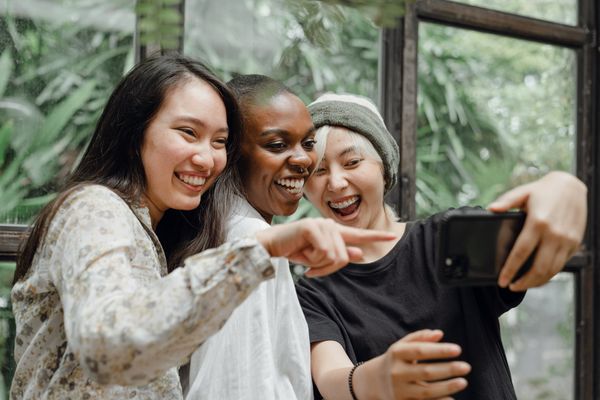As March stay-at-home orders descended upon America, the nation found solace in its ability to connect through technology. We became thankful for snapchat messaging, blessed to share drinks over Zoom happy hour, and lucky to text/call/DM our distant friends at a moment's notice. Understandably, we transformed virtual platforms into personal flotation devices, and we clung to them amidst the rising waters of quarantine.
In the early days of isolation, I too scrolled my feeds with vigor. I missed social interaction, and I felt as if solidarity were achievable through a glass screen. In the beginning, it was. I saw others sharing my concern about the pandemic, encouraging social distancing and preaching safe practices. I enjoyed watching people’s quarantine videos, their funny TikToks and laughable stories. Then isolation fatigue began to plague the nation, and the messages on my feed shifted. People who had just weeks before been virtually shouting about the necessity of distancing were hanging out with friends. Some were on planes, others at beaches and many at restaurants. It was at this moment that I realized the insincerity of our generation and the way social media perfectly captures our blatant hypocrisy.
Unlike the Evil Queen in “Snow White,” we need not peer into a magical mirror to confront our less attractive inner selves—a mere glimpse at our social media feed should provide a sufficient reflection. There, we can confront our true fickleness, our short attention spans and radical, bandwagon actions. Our short-lived, pro-quarantine social crusade is not the only example we can look towards to prove the extent of social media deceit; consider, for a second, the virtual explosion that followed George Floyd’s murder.
I want to be entirely clear here—I am not scolding all those who showed support for the BLM movement on social media. My critique does not apply to those who took tangible action, whether that be attending protests or articulating concerns. Yet for my “friends,” those who felt the necessity to participate in #BlackOutTuesday or implore others to donate to the bail funds of arrested protesters yet never displayed concern beyond the bounds of the internet, this critique is pointed directly at you.
Simply because you are “woke” and participate in a movement on social media does not make you a champion of the cause, nor does it display authentic support. It merely demonstrates blind obedience to social trends and a desire to be a part of a moment, any moment. Am I the only one who takes issue with accounts that feature BLM posts sandwiched between a bikini photo of tan sorority girls at a lake and a snapshot of hipster avocado toast? Is social media a platform where the posts of yesterday have no impact on matters of today, and the so-called calls to action disappear with each refresh of our screen?
Like the ebbing furor that inevitably collapsed the “in-ness” of being socially responsible, the BLM movement also experienced a mental fatigue that perpetuated a fall in virtual popularity. Feeds began to become less populated by calls for social justice and more became crowded with the stereotypical “it’s summer and I’m at the lake with a White Claw” posts. Most displays of support for the BLM matter were not removed, but rather left to collect dust in the virtual albums of Instagram oblivion to one day be deleted in the inevitable five-year purging most do to any online account.
The last, and perhaps most blatant display of our generation's social media stupidity have been the back-to-school posts. Call me ignorant, but I was unaware that so long as one photo documents you and your friends posing in masks, it was completely safe to willfully discard them in the next picture so the entirety of Instagram can see your laughing, COVID spreading faces. It appears that, in our pursuit of the perfect picture, we have negated common sense, social decency and care for one’s community—and we have chosen to meticulously document each transgression for national viewing.
This article is not meant to serve as a call to action, but merely provide a synopsis. Our generation is now regarded as lazy, technology-dependent, selfish and rude. It is time we face the reality: every one of these titles is accurate. This summer, we acted as corona super spreaders because our mis-prioritized minds convinced us that going to an event for the sake of a photo was more important than national health. We perceive ourselves as liberal change-makers, yet our true actions end with the push of a “post” button. We recklessly pursue “offenders” behind the safety of our screens, yet when the time comes for face-to-face interaction, we avoid discussion by throwing around terms like “invalidation” and “my perspective”. We are our own epidemic, yet I fear there will be no silver-bullet vaccine to save us. So, what will? Reflection? Introspection? An admission that we all care much too deeply about our falsified, fabricated virtual personas? Considering life and death has failed to conquer our generation’s egotistical aura, I doubt anything will. Except, of course, a wi-fi failure.
